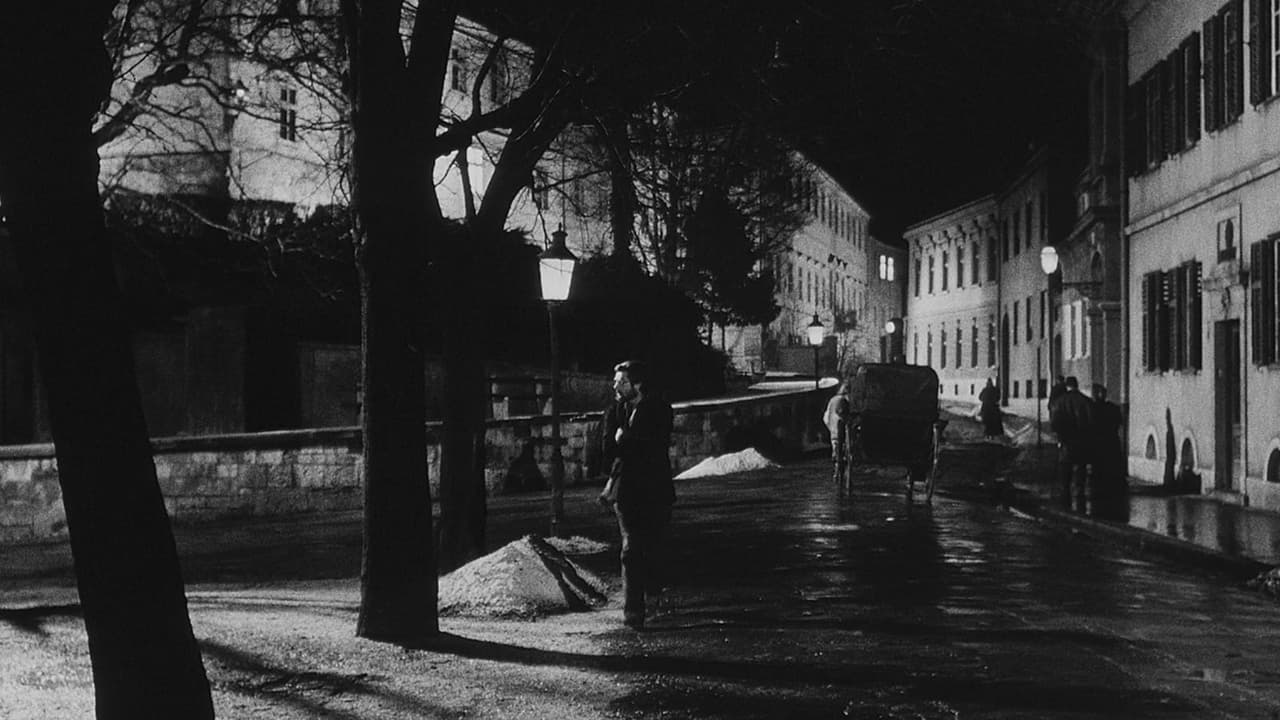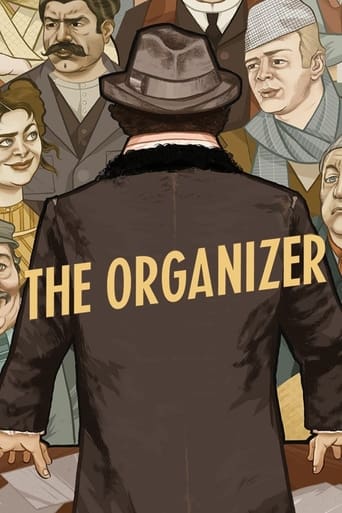

Disturbing yet enthralling
... View MoreA Major Disappointment
... View MoreThe best films of this genre always show a path and provide a takeaway for being a better person.
... View MoreThis is a gorgeous movie made by a gorgeous spirit.
... View MoreMario Monicelli's The Organizer (1963) is an excellent dramatic production.It is a very engaging, and compelling period piece set in the late 19th Century textile worker's strike in Turin, Italy. The storyline is very believable, if not totally historically accurate.The acting by the whole cast was somewhat inspired, very sincere, and believable. Marcello Mastroianni gives an exceptionally strong performance in a role that is quite different than the several others I seen him portray, that of a somewhat mild mannered, reflective, teacher cum labor organizer, who doesn't seem to be quite sure of himself on some level. This is certainly a departure from the glib, debonair, self assured, upper crust character that I've become accustomed to in the other films that I've seen him in. Yet,for me, his role in this film confirmed for me the breadth of his acting ability, and furthers my belief that he is one of the great actors of all time. Mastroianni is the dramatic lynchpin in this film, and carries the storyline to its conclusion.The cinematography in this film is really great, giving the viewer a variety of interesting "looks", as a result of diverse camera positions, and camera angles.The period sets and period costumes are very good. The huge indoor factory setting is amazing, and made me wonder where they got all that antique machinery.The dramatic tone of the film was just right, in my opinion, somewhat walking the tightrope between the various emotional tensions inherent in the storyline at various points.This film is just an example of good cinematic storytelling, allowing the viewer to see the emerging storyline from a diversity of character perspectives. The storyline has a few interesting twists, and the rather downbeat ending was rather unexpected, but left me pleasantly speculating about where the story went from there.
... View MoreThe difference between this film and a lot of other strike/union related films, is that it has a sense of humor and is not taken with its own self importance. As a matter a fact, the film is quite measured and cautious in its outlook. There are no heroics here, everybody is a full fledged human being with his/her weaknesses and strengths. Mastroianni is particularly wonderful here in a very nuanced performance, where he goes from nebbish professor to inspirational and powerful leader in matters of seconds. The script is very strong and Rotunno's cinematography is excellent. Monicelli injects the film with so many details that hit their mark, that he has gone from a very good director to a great one in my estimation. The early scenes at the factory are truly remarkable in a uniquely cinematic way. They hardly contain any dialogue and put you in the workers place in a remarkably efficient way.Highly recommended.
... View MoreEarnest, as 1 commentator said? Yes. Depressing, as the same commentator said? No, no, no. It's realistic, showing what was and too often is, not upbeat with false hopes for the future, except that the perseverance of the title character is upbeat. The Organizer is one of the best, perhaps the best, movie about union organizing that I can recall. As is often the case, Mastroianni's acting is different from any other role he has played. The same is true of Salvatori and Girardot. The movie itself is far superior to director Monicelli's Big Deal on Madonna Street, which doesn't really hold up today. I saw The Organizer when it first came out in the US and later on VHS. A DVD is long overdue.
... View MoreThe struggle of the working class for shorter hours and better conditions in a Torino textile factory is well portrayed in this somewhat depressing film.....depressing because in many parts of the world the confrontation between management and workers has still not been resolved. The introduction of scab labour to replace striking workers brings the film to a dramatic climax.It's a splendid cast with believable characters giving us both sides of the eternal argument. Is a 14 hour day with half hour lunch break asking too much of workers? This is a film of great atmosphere created by the factory sets and the continual thrashing noise of the looms. When the factory whistle blows at 8 PM you share the joy and relief of the workers after a hard day. This is a documentary type drama to be seen, to be believed and to be remembered for we know that these workers and others like them put their jobs on the line for conditions that we now enjoy to-day.
... View More